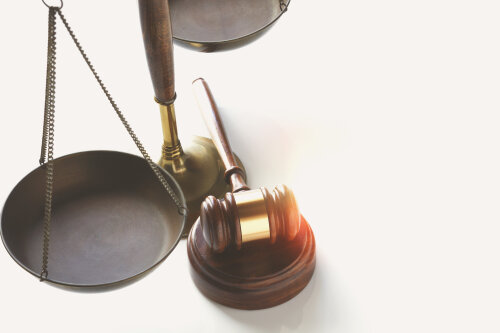Best Appeal Lawyers in Fort McMurray
Share your needs with us, get contacted by law firms.
Free. Takes 2 min.
List of the best lawyers in Fort McMurray, Canada
About Appeal Law in Fort McMurray, Canada
Appeal law in Fort McMurray, part of Alberta, Canada, involves the process of challenging a court decision in a higher court. This process allows parties dissatisfied with a court’s judgment to have their cases reviewed and reassessed. The primary courts involved in appeals are the Alberta Court of Queen's Bench and the Alberta Court of Appeal, with further potential escalation to the Supreme Court of Canada. Appeals focus on legal aspects rather than factual disputes, meaning they center on whether the law was correctly applied and procedures properly followed in the initial judgment.
Why You May Need a Lawyer
Appeals can be legally complex and procedurally intricate, making the guidance of a lawyer invaluable. Common situations requiring legal assistance include:
- If you believe the original court misapplied the law.
- If procedural errors affected the trial's fairness.
- If new evidence emerges that could significantly impact the case's outcome.
- If you or your opponent were dissatisfied with the judgment and wish to seek a different outcome.
- When interpreting sophisticated legal principles is crucial to taking an informed next step.
Local Laws Overview
In Fort McMurray, appeals are governed by both provincial and federal laws as laid out in the Alberta Rules of Court and various legislative statutes. Key aspects include:
- Timelines: Parties generally have 30 days from the date of judgment to file an appeal.
- Grounds for Appeal: Appeals must be based on legal grounds such as errors in applying the law, not on dissatisfaction with the decision’s outcome.
- Filing Requirements: This includes preparing a notice of appeal, an appeal record, and a written argument or factum.
- Standards of Review: The appellate court reviews legal issues with full jurisdiction but may defer to trial judges concerning facts.
Frequently Asked Questions
What is an appeal?
An appeal is a legal process where a higher court reviews the decision of a lower court to determine if there were errors in applying the law or due procedure.
Can any decision be appealed?
Not all decisions are eligible for appeal. Typically, only final decisions or orders can be appealed, and only on legal grounds such as errors in law or application of procedure.
How long does the appeal process take?
The appeal process can vary in duration, ranging from several months to over a year, depending on the complexity of the case and the court’s schedule.
Do I need new evidence for an appeal?
Appeals are generally limited to the evidence and details presented in the original trial. New evidence is typically not considered unless there are exceptional circumstances.
What is a "factum" in the context of an appeal?
A "factum" is a written document presented by each party in an appeal, outlining their arguments and the legal basis supporting their position.
Can I represent myself in an appeal?
While self-representation is legally permissible, it is highly discouraged given the complexity of appeals. Legal counsel can offer crucial expertise.
What fees are associated with filing an appeal?
There are court costs for filing an appeal, which vary. There may also be legal fees for lawyers' services if you engage counsel.
Is there legal aid available for appeals?
Legal aid may be available, subject to financial eligibility and the nature of the case. You would need to apply for aid through Alberta's Legal Aid program.
What happens if my appeal is denied?
If an appeal is denied, the original decision stands. However, in some cases you might pursue further appeal to a higher court, like the Supreme Court of Canada, if criteria are met.
What is the role of appellate judges?
Appellate judges review legal arguments, assess if errors were made in the initial judgment, and ensure that legal principles are correctly applied. They do not re-try cases or hear new evidence.
Additional Resources
Several resources can be beneficial for those involved in appeals in Fort McMurray:
- Alberta Courts: The official website provides resources and information on the appeal process.
- Legal Aid Alberta: Offers free or low-cost legal services for those who qualify.
- Law Society of Alberta: Provides directories to find qualified legal professionals.
- Canadian Bar Association: Offers educational materials and resources on various legal topics.
Next Steps
If you believe you have grounds for an appeal or need legal guidance, consider the following:
- Schedule a consultation with a qualified appeal lawyer to discuss your case.
- Collect all relevant documents from the original trial, including judgments and transcriptions.
- Be mindful of the time constraints for filing appeals to ensure compliance with legal timelines.
- Explore any potential for legal aid or financial assistance if needed.
- Stay informed about your case and maintain communication with your legal representative throughout the process.
Lawzana helps you find the best lawyers and law firms in Fort McMurray through a curated and pre-screened list of qualified legal professionals. Our platform offers rankings and detailed profiles of attorneys and law firms, allowing you to compare based on practice areas, including Appeal, experience, and client feedback.
Each profile includes a description of the firm's areas of practice, client reviews, team members and partners, year of establishment, spoken languages, office locations, contact information, social media presence, and any published articles or resources. Most firms on our platform speak English and are experienced in both local and international legal matters.
Get a quote from top-rated law firms in Fort McMurray, Canada — quickly, securely, and without unnecessary hassle.
Disclaimer:
The information provided on this page is for general informational purposes only and does not constitute legal advice. While we strive to ensure the accuracy and relevance of the content, legal information may change over time, and interpretations of the law can vary. You should always consult with a qualified legal professional for advice specific to your situation.
We disclaim all liability for actions taken or not taken based on the content of this page. If you believe any information is incorrect or outdated, please contact us, and we will review and update it where appropriate.









